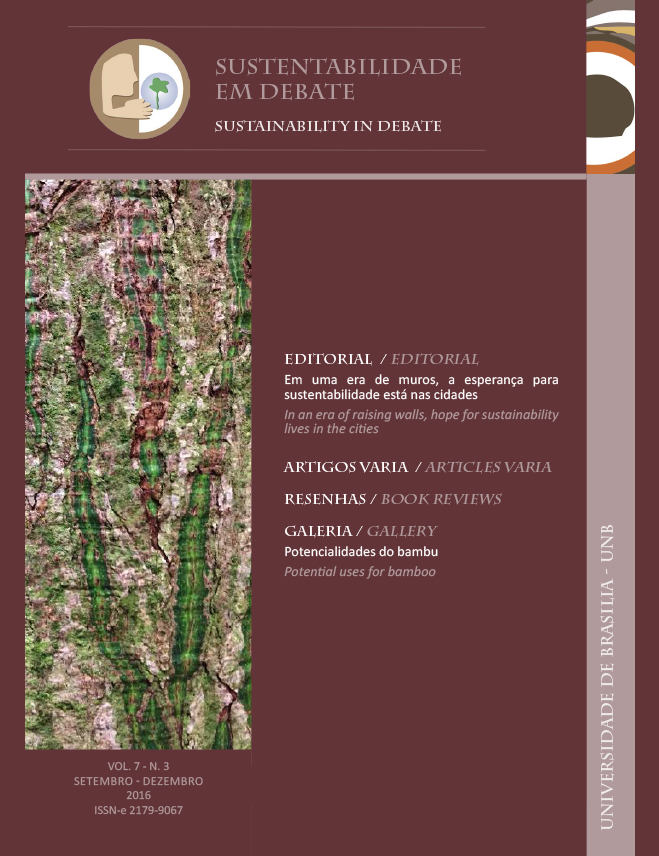Perspectivas socioculturais e econômicas da gestão hoteleira:
um estudo de caso no Hostel Ralé Chateau ”“ Rio de Janeiro
DOI :
https://doi.org/10.18472/SustDeb.v7n3.2016.18222Mots-clés :
Gestão Hoteleira, Responsabilidade Social Corporativa, Sustentabilidade Turística, Morro CantagaloRésumé
O processo de pacificação das favelas cariocas, por meio das Unidades de Polícia Pacificadora (UPP), não apenas altera o cenário da segurança pública, como também influencia os aspectos econômicos e socioculturais, destacando-se o turismo. Nota-se, a partir dessa política de segurança, um crescente número de turistas interessados em conhecer essas localidades, devido à s suas questões sociais e identitárias específicas à cultura carioca. Assim, empresas hoteleiras enxergaram ali não apenas nichos de mercado potenciais, mas também a possibilidade de ofertar uma rede de significados socioculturais capazes de enriquecer a vivência do turista. Nesse sentido, um estudo de caso propiciou uma investigação qualitativa acerca dessas particularidades, tendo como objeto o Hostel Ralé Chateau, situado no Morro Cantagalo, no Rio de Janeiro. Ali, observou-se o escopo da responsabilidade social, enfatizando-se a necessidade de uma gestão que equacione os interesses comunitários, de stakeholders e turistas, expondo tais territórios como locais apropriados à prática turística.
Téléchargements
Téléchargements
Publié-e
Comment citer
Numéro
Rubrique
Licence
SUSTAINABILITY IN DEBATE – Copyright Statement
The submission of original scientific work(s) by the authors, as the copyright holders of the text(s) sent to the journal, under the terms of Law 9.610/98, implies in the concession of copyrights of printed and/or digital publication to the Sustainability in Debate Journal of the article(s) approved for publication purposes, in a single issue of the journal. Furthermore, approved scientific work(s) will be released without any charge, or any kind of copyright reimbursement, through the journal’s website, for reading, printing and/or downloading of the text file, from the date of acceptance for publication purposes. Therefore, the authors, when submitting the article (s) to the journal, and gratuitous assignment of copyrights related to the submitted scientific work, are fully aware that they will not be remunerated for the publication of the article(s) in the journal.
The Sustainability in Debate Journal is licensed under Creative Commons License – Non-Commercial-No-Derivation Attribution (Derivative Work Ban) 3.0 Brazil, aiming at dissemination of scientific knowledge, as indicated on the journal's website, which allows the text to be shared, and be recognized in regards to its authorship and original publication in this journal.
Authors are allowed to sign additional contracts separately, for non-exclusive distribution of the works published in the Sustainability in Debate Journal (for example, in a book chapter), provided that it is expressed the texts were originally published in this journal. Authors are allowed and encouraged to publish and distribute their text online, following publication in Sustainability in Debate (e.g. in institutional repositories or their personal pages). The authors expressly agree to the terms of this Copyright Statement, which will be applied following the submission and publishing by this journal.









